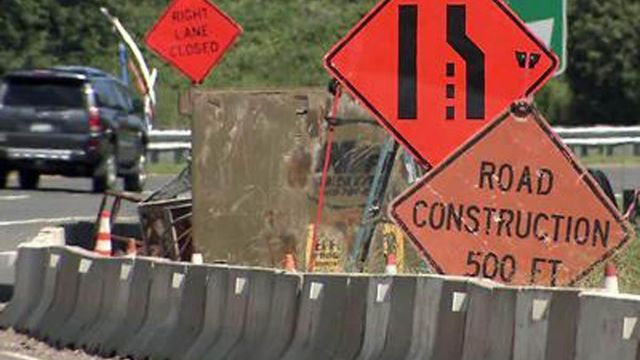Lawmakers want details on McCrory infrastructure plan
Gov. Pat McCrory has for months floated the idea of a $1 billion bond to pay for needed infrastructure in rural areas, but lawmakers said Tuesday they want to hear more details about the plan before committing to it.
Posted — UpdatedThe General Assembly reconvenes Wednesday for its 2015 session – lawmakers held a one-day organizational session two weeks ago – and McCrory is expected to be invited to the Legislative Building sometime next week to deliver a State of the State address.
Even though there has been no formal debate on the governor's plan, lawmakers said they have had informal discussions about it. The House even plans to create a budget subcommittee on Wednesday to handle capital improvement projects.
"I think that there’s some cautionary optimism. We’ve got to see how it’s put together," said Rep. Charles Jeter, R-Mecklenburg.
McCrory has provided few details other than saying the roughly two dozen projects would boost connectivity outside of North Carolina's metro areas, creating jobs and economic development opportunities in counties still reeling from the recession.
"There’s mixed emotions on both sides. Of course, the main concern is how much bond can this state handle and still maintain our AAA rating," said Sen. Brent Jackson, R-Sampson.
State Treasurer Janet Cowell has previously said the state can borrow up to about $1.2 billion and remain within its debt margin. But other capital needs could compete for that money against the governor's proposal.
Jeter said he supports the concept of a bond but expressed concern about how the projects were chosen for inclusion. Lawmakers only last year overhauled the transportation planning process to ensure projects were funded based on need and not because a powerful politician backed it.
"This, to me, sounds like a new earmark that goes above and beyond the (Strategic Transportation Initiative) program that we just passed," he said. "Are we now politicizing roads again?"
Another question is whether the voters should get a say in any bond.
If lawmakers choose the cheapest type of bond they can get, a general obligation bond, voters would have to approve it in November.
"Anytime the state goes into debt, I personally believe that the voters should have a say in that," Jackson said.
Jeter noted, however, that waiting to put it on the ballot this fall would mean trying to approve the related legislation during next year's short session, which could be difficult.
"(That) becomes more challenging to get something like this passed because of the way we do things in North Carolina. So, now you’re really looking at two years before this gets done," he said.
He suggested using certificates of participation, a type of bond that doesn't require voter approval. It carries a slightly higher interest rate and would cost more over time, but could be put to work much more quickly.
"At some point, we’re elected to make decisions, and I think we’ve got to step up and make those decisions," he said. "The voters get to vote on us every two years, and if we’re not doing what we should be doing, I’m sure they will remind us that."
Related Topics
• Credits
Copyright 2024 by Capitol Broadcasting Company. All rights reserved. This material may not be published, broadcast, rewritten or redistributed.






